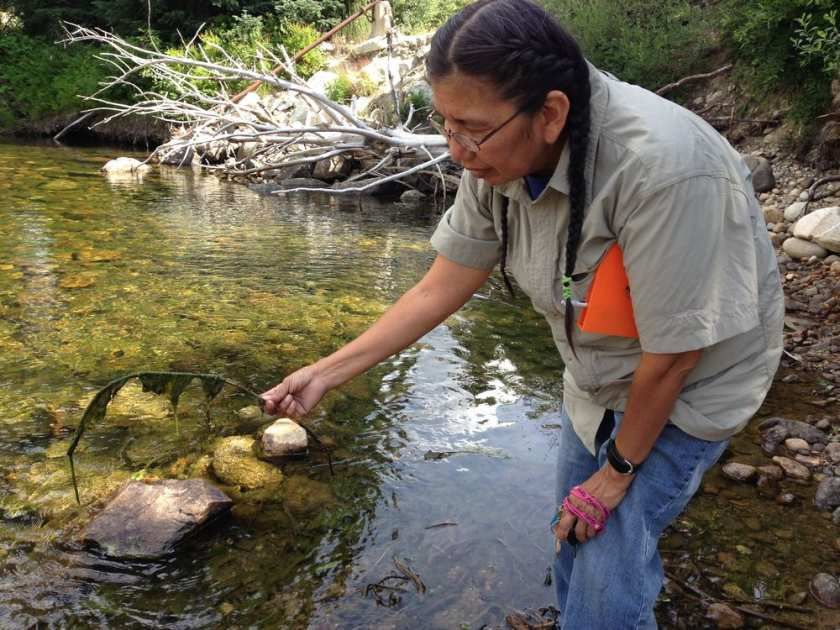Oliver M. Brandes & Rosie Simms, Vancouver Sun, 24 August 2016
 Recent headlines — from the Nestle water showdown in Ontario, to the recognition of drought as the biggest health risk in Africa (even ahead of AIDS), to California and Australia facing persistent and historical levels of scarcity — demonstrate what a water crisis can look like.
Recent headlines — from the Nestle water showdown in Ontario, to the recognition of drought as the biggest health risk in Africa (even ahead of AIDS), to California and Australia facing persistent and historical levels of scarcity — demonstrate what a water crisis can look like.
Closer to home, last year’s panic-inducing drought and this summer’s failed Fraser River salmon run show the growing concern around our most precious resource: water.
The ominous threat of a water crisis looms even here in British Columbia. The implications are monstrous, affecting everything from our economy, our environment, and even our health and quality of life. Brian Richter, one of the world’s foremost water scientists, drove this message home at a recent water forum in Vancouver, declaring: “Approximately one-third of the world’s rivers have been heavily depleted; trust me, you don’t want B.C. to join that category.”
To date, British Columbians have stumbled happily along under the dreamy myth of water abundance, relying on reactive measures as water concerns mount. On the Coldwater River, for instance, conditions were so dry in 2015 that the province had to issue water-use restrictions so there would be enough water for fish to move upstream. This provided temporary relief, but band-aid solutions are not holding up as the health and function of our lakes, rivers and streams unravel.
Experts, water managers, communities and even politicians all know that we need to anticipate and start planning now to avoid tomorrow’s water disaster. Yet when it comes time for action, this foresight becomes seemingly impossible to achieve. It’s time to flip the script for our future — protecting freshwater is the task of our century and one for which B.C. has the golden opportunity to implement a proactive management approach.
Water-flow patterns are essential to B.C.’s rivers, lakes, aquifers, and wetlands, connecting upstream and downstream habitats, and sustaining fish and wildlife populations, commercial industries, and some of our most beloved recreation. Diversions, dams and climate change have severely compromised the natural flow in many of B.C.’s watersheds.
B.C. is responding with its new provincial water law—the Water Sustainability Act, in force as of February 2016. It provides some of the tools to better protect water, including requiring government decision-makers to consider nature’s water needs in future water licensing decisions, and providing new temporary protections that kick in during times of scarcity to ensure fish and ecosystems can survive.
These are important gains, but more is needed, especially when it comes to implementation. Let’s celebrate these initial positive steps, but also keep working to ensure a robust regime to protect life-sustaining freshwater flows. At the recent water forum, several key steps were identified for B.C. to take to avoid the fate of increasingly impoverished and threatened rivers of the world, including:
B.C.’s watersheds are diverse and need unique flow thresholds, but this is time- and resource-intensive work that must be balanced against the need to implement the protections now. Establishing a province-wide standard for basic water-flow protection in regulations will help set up the legal safety net until more detailed regional or stream-specific studies are done.
Second, Aboriginal constitutional rights to fish for food, social, ceremonial and commercial purposes are inherently tied to adequate water flows to sustain those fish and the basic health of the watershed. These rights must be acknowledged, affirmed and protected. Also, First Nations across B.C. need to be engaged in decisions about how to better manage and protect their home waters.
Third, we must start now in high-priority areas such as the Okanagan and the east coast of Vancouver Island taking an adaptive, iterative approach to management. Traditional ecological knowledge and novel sources of community-based monitoring and citizen science can help fill data gaps and provide the necessary information to get started now, not tomorrow.
B.C. need only look to Australia or California to see the jaw-dropping costs to the economy, ecology and society of depleting water for nature. Following the Millennium drought in the 2000s, the Australian government is paying billions of dollars to purchase water back for the environment. The lesson here is simple: leave enough water for nature to avoid the chaos and prohibitively expensive efforts to recover that same water later.
B.C. can do this — but it means we need to start now and ensure enough water stays in aquifers, lakes, rivers, and streams to not only survive but also thrive for generations to come.
Oliver M. Brandes is the Co-Director of the POLIS Project on Ecological Governance. Rosie Simms is the Water Law & Policy Researcher/Coordinator at the POLIS Water Sustainability Project. Together with WWF-Canada, they recently authored a Host’s Statement and Summary of the Forum on Environmental Flow Needs in British Columbia.
 Email
Email



